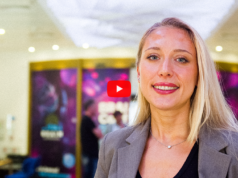 Viz.ai and TeleSpecialists have announced new data presented at the 2023 International Stroke Conference (ISC; 8–10 February, Dallas, USA) from the VALIDATE study, which demonstrated that hospital utilisation of Viz’s artificial intelligence (AI)-powered care coordination platform was associated with a 39.5-minute reduction in patient arrival to time of first contact with a neurointerventionist for potential emergency endovascular treatment.
Viz.ai and TeleSpecialists have announced new data presented at the 2023 International Stroke Conference (ISC; 8–10 February, Dallas, USA) from the VALIDATE study, which demonstrated that hospital utilisation of Viz’s artificial intelligence (AI)-powered care coordination platform was associated with a 39.5-minute reduction in patient arrival to time of first contact with a neurointerventionist for potential emergency endovascular treatment.
“In the world of stroke treatment, the saying ‘time is brain’ comes from the fact that, when brain tissue is deprived of oxygenated blood, approximately two million neurons die every minute,” said Theresa Sevilis, director of clinical research at TeleSpecialists and study co-author. “VALIDATE data show that use of the Viz platform resulted in a clinically important decrease in the time it took for large blood vessel occlusion recognition and contact with the interventional team, which in turn may translate to fewer neurons dying and, ultimately, better patient outcomes.”
The independent VALIDATE study analysed data extracted from acute stroke consultations seen by TeleSpecialists’ neurologists in the emergency department across 166 facilities in 17 US states. A total of 14,116 patients were included from two groups: those seen in hospitals using AI (n=8,557) and those seen in hospitals not using AI (n=5,559).
The study found that the median door to neurointerventionist notification time for AI was 50 minutes compared to the median door to neurointerventionist notification time for non-AI at 89.5 minutes (p<0.001)—a difference of 39.5 minutes. In addition, the statistically significant (p<0.01) improvement in time to large clot recognition and contact with the neurointerventional team at Viz-enabled centres occurred regardless of whether the centre did or did not have thrombectomy capability.
“These data, which resulted from measuring the impact of our platform on patient care in the real world, reinforce results we have seen in previous studies that have typically involved a single centre with a limited number of patients,” said Jayme Strauss, chief clinical officer at Viz. “The first multicentre study involving a large number of patients, VALIDATE, compared results from the same time period between hospitals that used the Viz platform and those that did not have AI software, thus eliminating the potential confounding effect of changes in workflow that occur in hospitals over time. This tightly controlled scientific study clearly illustrates the tremendous impact of our technology.”
“The VALIDATE results demonstrate a time improvement in emergency stroke workflow between Viz-enabled and non-Viz-enabled centres that was statistically significant, and highly clinically important,” added Thomas Devlin (University of Tennessee Health Science Center, Memphis, USA), co-author of the study. “The study design allowed for very careful and rigorous insight into exactly how powerful the Viz platform is at expediting treatment for one of the most time-sensitive conditions in all of medicine.”
Last year, Viz and TeleSpecialists announced a strategic partnership aimed at bringing AI-powered care coordination together with leading telestroke neurologists to optimise time to treatment and improve patient outcomes across the USA.









